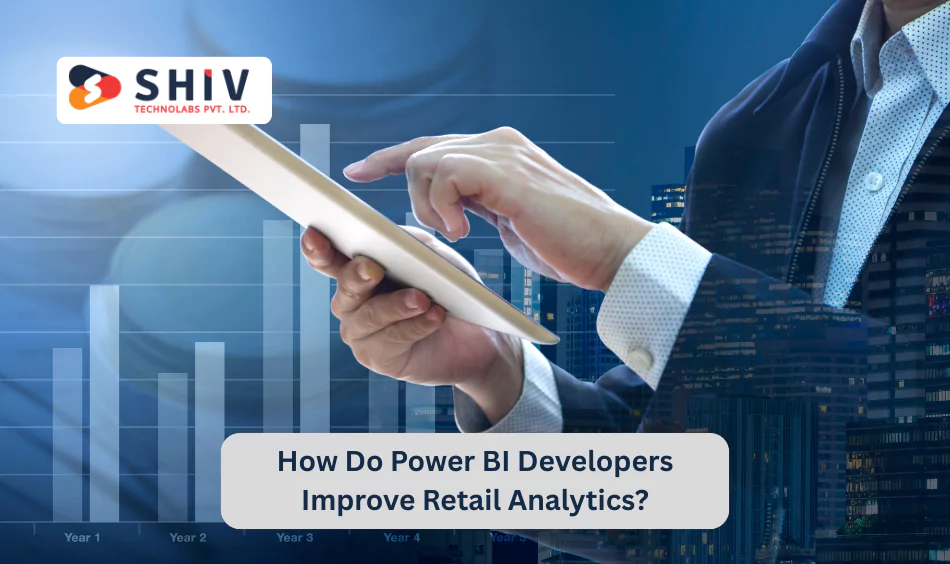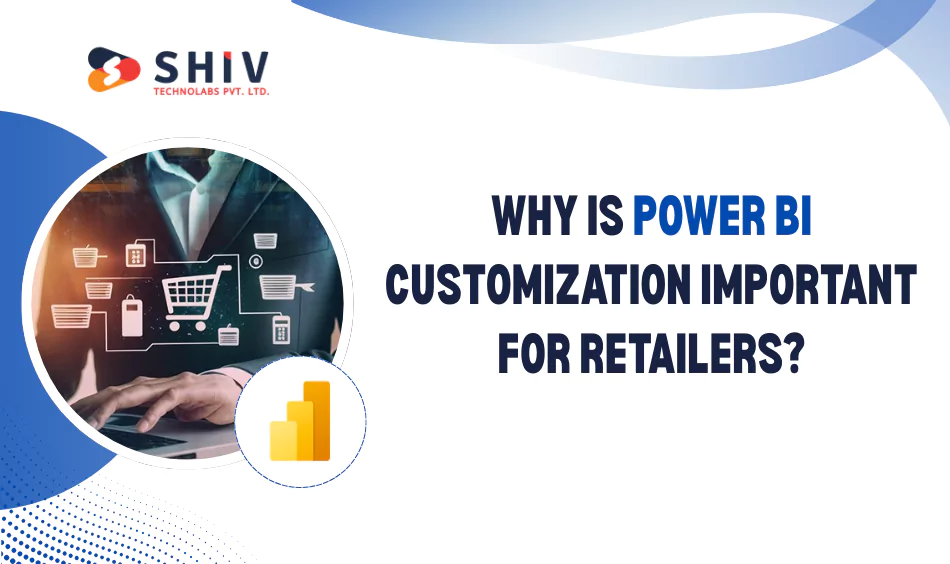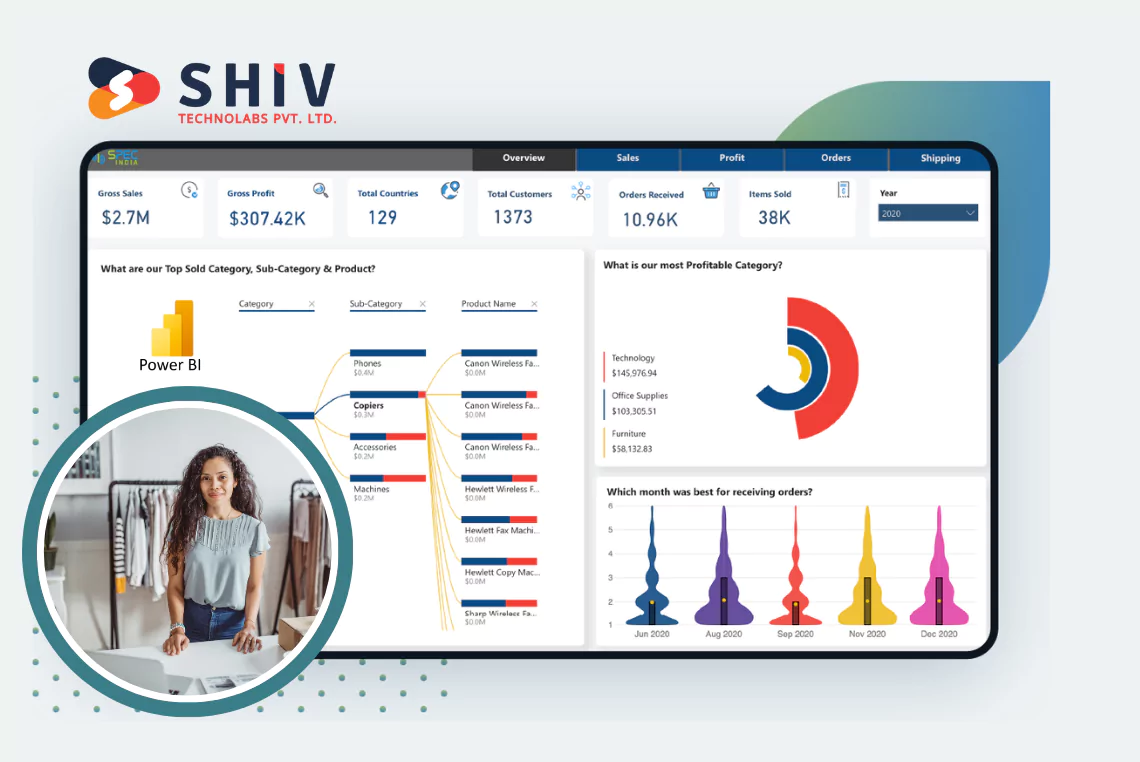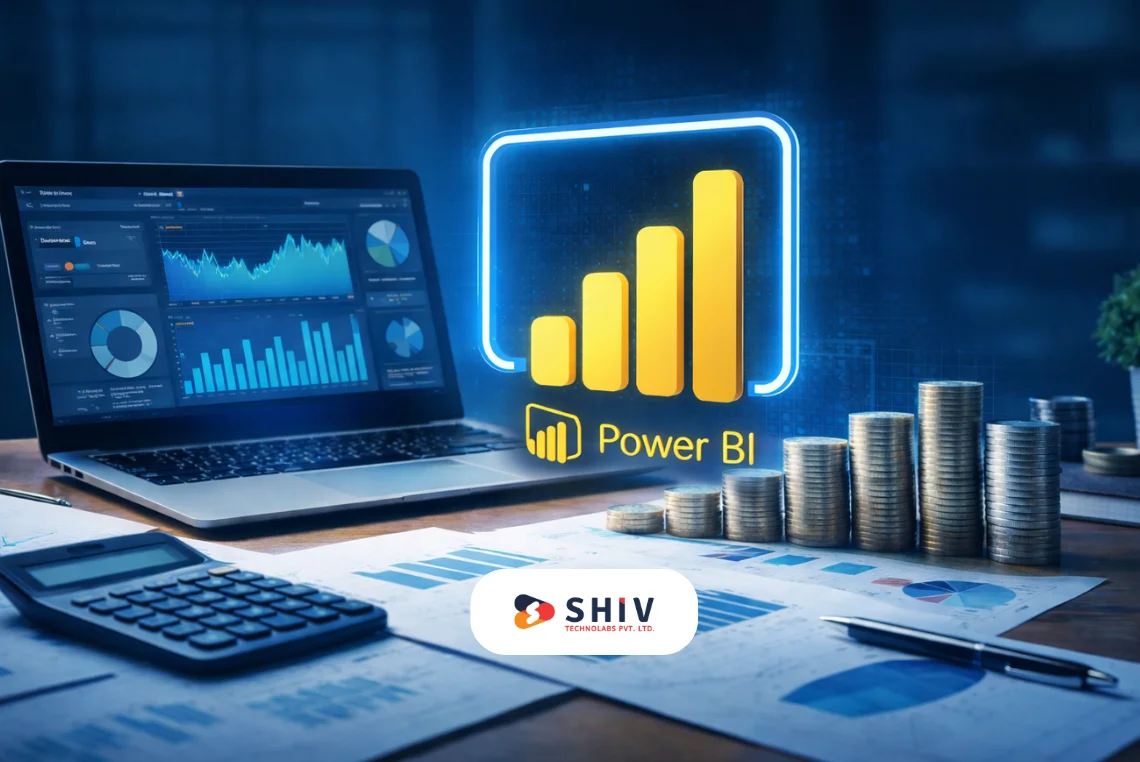Table of Contents
The current retailers face a challenge in managing sales information across multiple stores, online platforms, and customer contact sites. The problem is not only to gather the data but also to understand it as it is coming. That is where Power BI customization for retailers comes as a game-changer. It enables retailers to break down spreadsheets and stand-alone reports with its powerful analytics and visualization to act on the insights.
The truth of the situation is that retail businesses involving multiple stores usually fail to manage performance tracking. Performance is hindered by the act of manual data collection, which delays decision-making and conceals revenue potential.
When you hire Power BI developers for retail, you can finally bridge the gap between disintegrated data and understandable patterns. Developers prepare dashboards that emphasize sales trends, store comparisons, and profitability in formats that business leaders can utilize. It converts sales into smarter retailing, leading to growth.
Why Do Multi-Store Retailers Struggle With Sales Tracking?
Sales reporting can be chaotic, even in large retail brands. The problems are due to fragmented systems, manual processes and failure to analyse both the micro and macro performance.
Disconnected POS and CRM Systems
The majority of retailers apply various point-of-sale and customer relationship management tools. In the absence of integration, sales data and customer insights remain in silos, resulting in gaps in the overall picture.
Delayed Manual Reporting
Spreadsheets, which can take days to build, are still used by the store managers in most chains. Numbers may be passed over by the time it reaches head office, and thus opportunities will have been squandered.
Difficulty Comparing Outlets
When the standards are not standard, it is a gamble to compare the performance of various outlets. Which of these stores sells by square foot? Where is the retention going down? Such answers can hardly be given by manual reports.
Missed Sales Opportunities
Retailers may be missing out on recognising trends such as stockouts, regional or product-based nonperformance when sales information is not accurate and timely. This is literally lost revenue.
How Do Power BI Developers Improve Retail Analytics?

Power BI Developers turn silo-ed retail solutions into a source of truth. They create custom dashboards with POS, CRM, ERP, and even e-commerce-based platforms integrated in a single display.
In addition to technical configuration, such developers can set up data cleansing rules, craft visualisations according to retail KPIs, and automate reports so that decision-makers can always have the up-to-date figures at their fingertips. This eliminates the guesswork associated with manual reporting, providing assurance of reliable and data-driven strategies.
| Developer Task | Retail Benefit |
|---|---|
| Dashboard customization | Store-specific KPIs |
| System integration | Unified data sources |
| Report automation | Faster decision-making |
What Do Power BI Retail Dashboards Show Across Stores?
Power BI retail dashboards allow leaders to zoom into store-level details while still keeping the big picture in focus. They display metrics that matter most to retail growth.
Sales per Square Foot
This measure helps see the effectiveness of the operating space of each store and have improved store layouts and planning of inventory.
Regional Performance
Retailers will be able to understand which geographic areas are performing well and increase/decrease marketing budget or inventory accordingly.
Top-Selling Products
Dashboards would point to rapid-selling items in different stores, thereby ensuring that buyers optimise their allocation of stocks and maximize their profits.
Store-Wise Revenue Growth
Managers can compare year-to-year or month-to-month performance of single outlets to identify growth trends or lagging performance early enough.
How Does Retail Business Intelligence With Power BI Support Leaders?
Retail business intelligence with Power BI provides executives with the insights they need to make better and quicker decisions. Rather than having to wait weeks between quarterly-type reports, they can get a performance update instantaneously and modify operations accordingly.
For instance, a retailer analyzing seasonal sales can utilize Power BI dashboards to pinpoint early surges in demand for winter jackets. The leaders can thereafter manipulate additional orders or promotions without the competitors noticing. The data from loyalty programs can also be analyzed to identify which customer groups are most involved and which campaigns need adjustments.
Why Is Power BI Customization Important for Retailers?

Multi-store retailers do not require generic dashboards. These scenarios are unique to each brand in terms of metrics, reporting and branding requirements that must be addressed individually. That is why Power BI customization needs are paramount to retailers.
Customization means that developers make sure dashboards are not only functional but also geared toward business objectives. They are capable of integration with ERP systems, complying with the branding of the firm as well as emphasizing retail-based KPIs.
This personalization ensures that leaders focus on what truly matters, rather than getting lost in irrelevant numbers.
- Generic Reports: Limited KPIs, static formats
- Customised Reports: Retail KPIs, visual branding, ERP integration
How Does Power BI for Retail Analytics Drive Growth?
Power BI for retail analytics offers more than just reporting. It opens up forecast-based insights and growth opportunities that cannot be provided by traditional reporting.
Demand Forecasting
Historical data on transactions can be used by retailers to forecast future demand so as to minimize costly cases of stockout or stock overstocking.
Customer Behaviour Insights
Dashboards expose consumer purchasing patterns and preferences, enabling the creation of special offers and the optimization of inventory.
Predictive Promotions
Retailers can use the trends to initiate timely promotions prior to the surge in demand and have an advantage over their competitors.
Competitive Benchmarking
The retailers can measure themselves against the industry trend to ensure they gauge their performance accurately.
Why Should Retailers Choose Shiv Technolabs for Power BI Development?
Retailers seeking to optimise their sales knowledge require a business partner who understands both technology and the retail business. Shiv Technolabs is highly experienced in Power BI development, so custom dashboards, integrations, and support will be provided and adjusted to the retailer’s needs.
Why choose us:
- 9+ years of BI experience
- 400+ projects delivered
- Certified Power BI developers
- Flexible hiring models, including hourly and dedicated
Hire expert Power BI developers for retail at Shiv Technolabs and take control of your sales data with confidence.
Conclusion
It is much more effective to track retail sales with the help of personalized analytics and integrated dashboards. Power BI provides precision, clarity, and predictive intelligence that retailers require in running several stores.
Shiv Technolabs helps to power data to optimize retailer performance all over the globe using tailored Power BI solutions. Whether it is monitoring sales at the store or modelling predictions, our team of professionals takes care to make sure retailers make the most out of their data.
Whether you need to support a Demand Global Procurement Enterprise or an entire chain of retail stores, Power BI Developers at Shiv Technolabs can deliver the solution.






















